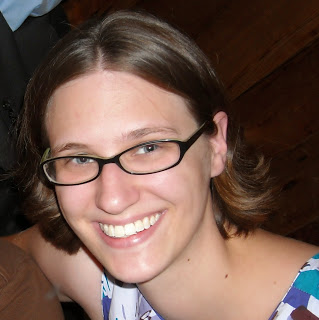Lines in the Sand and Boundaries: Surviving Graduate School
 Today, Rachel Anna Neff is contributing with her thoughts on self-care in academia. Rachel Anna is working an alternate academic career as a copy editor and writer for a public university. She finished her doctorate in Spanish literature in June 2013 with her dissertation “Weird Women, Strange Times: The Representation of Power through Female Gender Portrayals in 19th and 20th century Hispanic Literature.” She is currently pursuing an MFA in creative writing. You can find her on Twitter as @celloandbow or read her weekly blog at boredgnat.blogspot.com.
Today, Rachel Anna Neff is contributing with her thoughts on self-care in academia. Rachel Anna is working an alternate academic career as a copy editor and writer for a public university. She finished her doctorate in Spanish literature in June 2013 with her dissertation “Weird Women, Strange Times: The Representation of Power through Female Gender Portrayals in 19th and 20th century Hispanic Literature.” She is currently pursuing an MFA in creative writing. You can find her on Twitter as @celloandbow or read her weekly blog at boredgnat.blogspot.com.
The first and most important step before you start your graduate studies is to make a list of three things you will absolutely not give up for graduate school. Already in graduate school? Make that list now. Making a list may seem silly, but the purpose and act of writing down what is most important to you is very serious. By writing down and thinking about what you hold most dear, you are setting up a boundary.
Boundaries are extremely important to getting through your graduate studies and navigating the daily stresses and expectations from your students, professors, peers, and yourself. When you write down the three things you will not give up for graduate school, you are drawing a line in the sand. You are telling yourself these things are most important to you and graduate school is not worth losing them. Make this list. Make boundaries. Mean them.
My personal list was (if I recall correctly): my relationship with my fiancé and my family, playing cello, and sleep. The worst year I had in graduate school was when I realized I had given up too many of my initial limits from when I started graduate school. I had lost touch with what was most important to me, and I had let preparing for my qualifying exams and writing my first dissertation chapter take over my entire life. I was miserable and depressed.
My epiphany came when my fiancé and I almost ended our then-six-year relationship because I felt I couldn’t spare any weekend to fly up and visit. I skipped my favorite aunt’s wedding because I was scheduled to take my qualifying exams two weeks later, and I felt in that moment I couldn’t spare any time to fly out and attend.
What was most upsetting about the decisions I made was I missed out on a lot of family events, and I still ended up taking an extra year to finish my dissertation. I canceled my scheduled qualifying exams in early April 2011; the chapter was not anywhere in good enough to shape to go to a defense and I still had a significant number of works to read for the written exam.
Sitting in my adviser’s office, my ears rung and the world started becoming small when I said to him in this mewling voice, “I don’t think I’ll be ready to take my exams this year.”
I had spent so much time building up this idea that my adviser would be incredibly disappointed at me for not taking these exams. I felt embarrassed and humiliated knowing other students who entered the program after me were further along with their research projects and writing. Taking in small, shallow breaths, I tried not to start sobbing, even though I felt my eyes watering. I stared at the edge of my adviser’s desk, not wanting to see if my fears were true.
He calmly and kindly said, “That’s okay. We’ll cancel your exams. You can let us know when you’re ready to take them. I’d rather you have a better long paper and pass your qualifying exams than rush in and be asked to take them again.”
I looked up, slightly stunned. I had expected to be dressed down, to have to face a look of disgust or disappointment from my adviser, from my academic idol. Instead, I was fortunate enough to have a compassionate and caring individual who was sincerely concerned for my wellbeing.
Two years after that afternoon in my adviser’s office, I was packing up and moving across the country for a second time in less than eight months. I only had one more dissertation chapter to write, and the end was in sight. (N.B. Don’t move across the country twice while you’re writing your dissertation. It falls into the category of bad ideas.)
The greatest set of questions I learned to ask myself during the dissertation process was: Will this really matter in five years? Ten? Fifteen? Twenty?
Surviving graduate school means you have to put on your own oxygen mask first. Giving up all your boundaries will result in you losing yourself and being frantic and miserable. If taking care of yourself means you take a quarter off (I did) or do your dissertation in absentia (I did that as well), then do it.
Like my father once told me, “You know what special name they have for the (medical) doctor who graduates last in the class? Dead last, barely passing all the classes? Doctor.” The dissertation doesn’t have to be perfect; it has to be done. Let go of the small things and look at the big picture. Did you cave in and lose your boundaries? Did what you give up those boundaries for matter? Will it matter in five, ten, fifteen, or twenty years? No? That’s what I thought.
